The title "Упай" translates to "Upay" in English.
Upai — one of the ancient games of the Kyrgyz people played with alchiks.
For the game, 16—20 basyms (sets) of alchiks are taken, i.e., 48—60 pieces. One set consists of 3 alchiks. It is preferable that the alchiks are of the same size, even, without defects or damages.
One alchik is designated as the "khan." To distinguish the "khan" from the rest, a larger alchik is usually taken and painted in a bright color.
The game is played by two players or 2 teams with a small number of players (3—4).
Players sit in a circle on a flat surface, dark cloth, or mat. The starting player takes all the alchiks in their joined hands, placing the "khan" in the center, and scatters them on the mat. The first strike is made by the player on the "khan." If they hit the target, they continue the game; if they miss, the next player takes their turn. Strikes are made with alchiks that are the same in position, i.e., taa can hit taa, aikur can hit aikur, etc.
A player who violates this condition loses their turn. The alchik being struck is called "ok" (bullet), and the alchik being hit is called "kiyik" (game). The strike is made only with one finger, most often the index finger. After starting the game and knocking out the "khan," the player holds it in their free hand or places it separately (it is not allowed to place the "khan" and alchiks in one pile — this results in losing the turn). Now they need to knock out three alchiks in a row. The player must knock out the alchik with their right hand. Moreover, the knocked-out alchiks are collected in the same hand. They can only transfer them to the other hand after knocking out all three alchiks. In this way, they must collect half of all the alchiks. Then the "khan" is considered won. Otherwise, both the "khan" and the alchiks return to the stake. Hitting twice in a row with the same "ok" is not allowed, but hitting it as if it were a "kiyik" is not prohibited.
A player loses the right to strike if: the "ok" touches another alchik after the strike, they mistakenly take an "ok" instead of a "kiyik" after hitting, they touch another alchik with something, they strike an alchik that is not tightly placed, the "ok" lies on the "kiyik" they hit, or any of their partners touch the alchiks they have won. Consulting with partners is prohibited. If the losing team collects at least one basym of alchiks, the game can continue. Then the other team lays out the same number of alchiks, and the game continues. The team that knocked out the "khan" starts the game.
Read also:

Orda - Khan's Headquarters
Ordo (literally "Khan's camp") is a two-sided team national game that exists only...
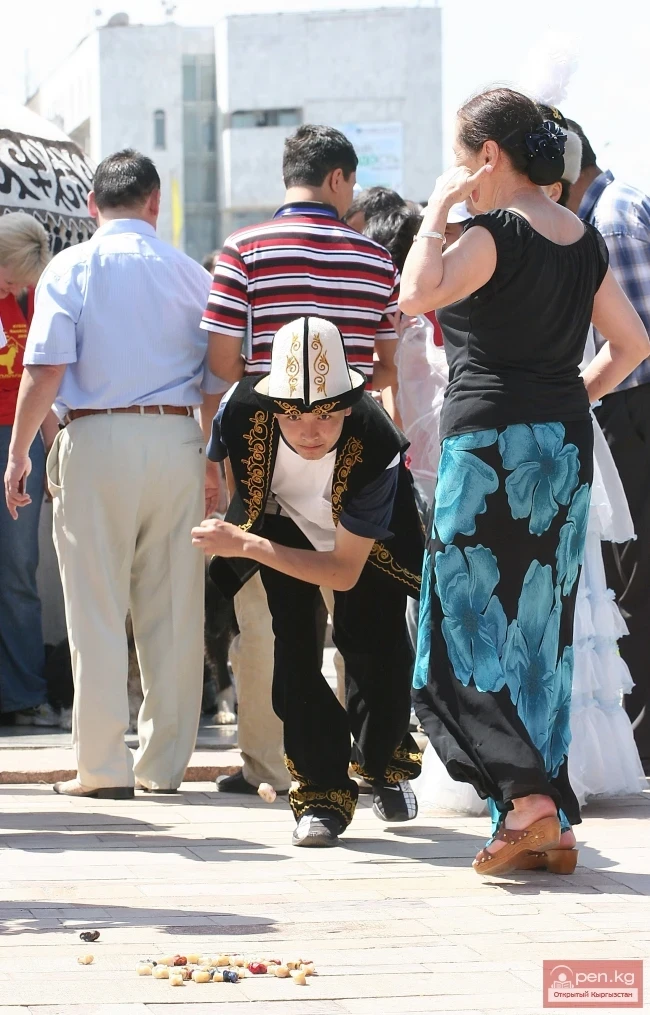
Achakey-Zhumakey and Chaka Chapmay
Achakey-jumakey. It is played by two participants. The goal of the players, by taking turns...
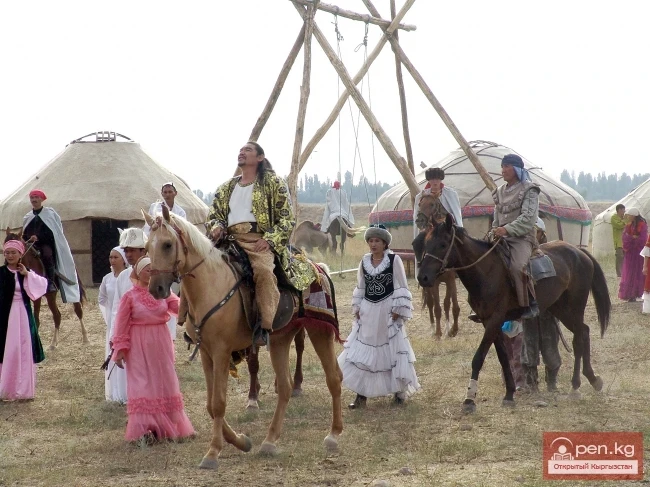
Chakan Atmai (Chakan Tash)
Chakan atmay (chakan tash) — a game for schoolchildren of younger and middle ages. It is played by...
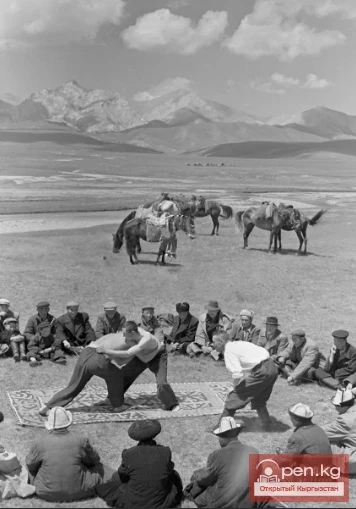
Games of the Kyrgyz in the Early 20th Century
Games. Games in alchik (chukyo): urda, kan (a women’s game where alchik are piled on both hands...
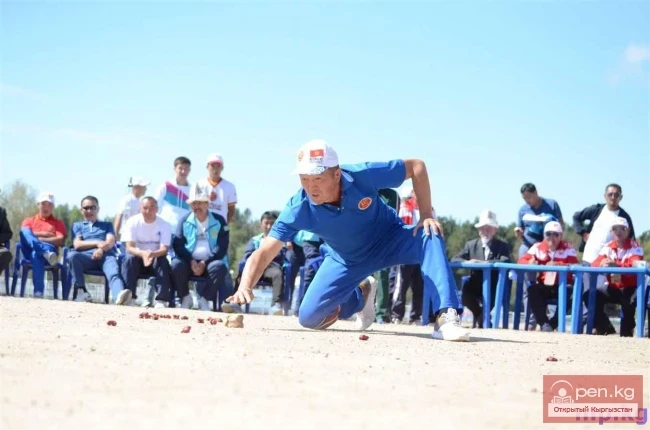
Ordo - conquering spaces...
We continue to introduce our readers to national sports that have survived to this day from the...
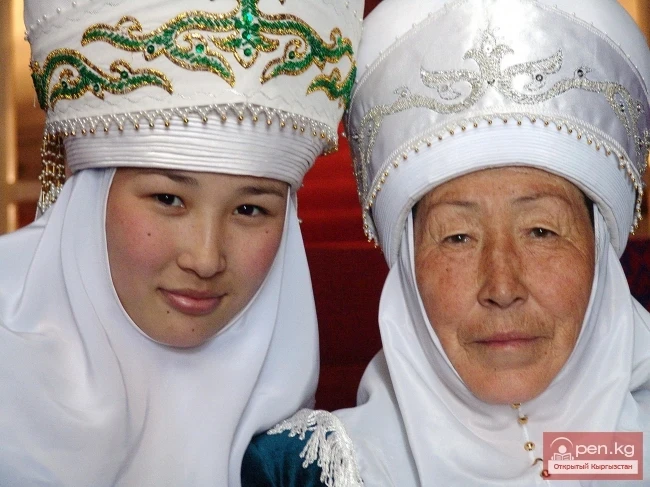
"Don't Leave a Trace"
Do not drop the handkerchief (to toss the handkerchief) — one of the popular youth games....
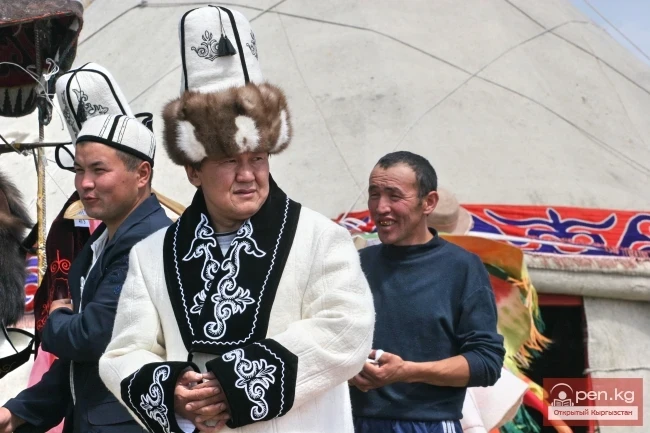
The title "Теке чабыш" translates to "Tekke Race" in English.
Teke chabysh is a game that resembles a kind of "hockey" on the ground....
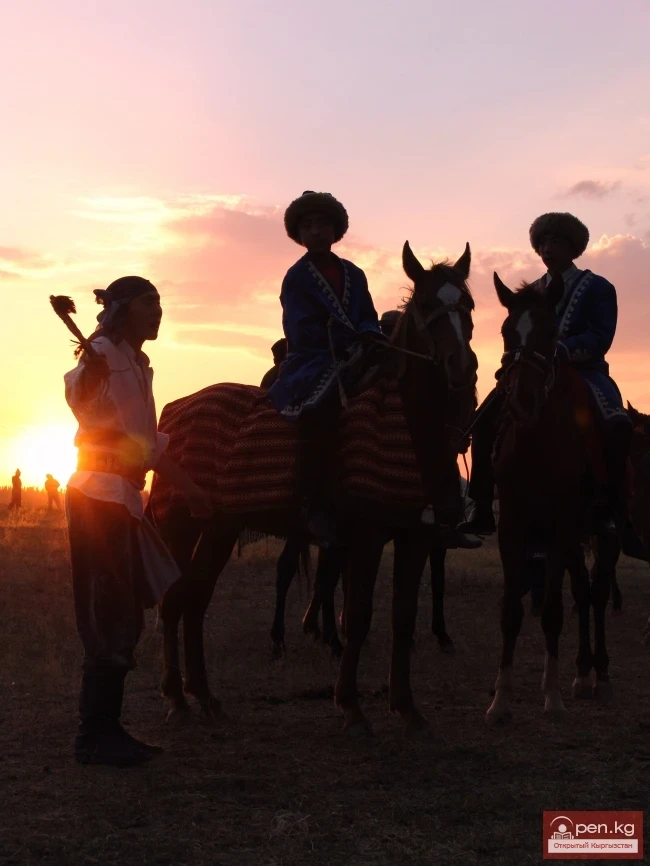
The title "Ак чолмок" translates to "White Hat" in English.
Ak cholmok (white shuttlecock) is a youth night game typically played by both girls and boys on...
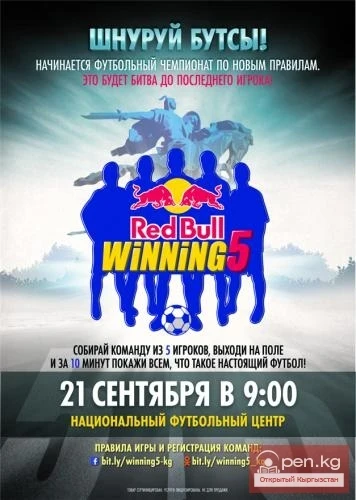
Football Championship with New Rules Red Bull Winning 5
On September 21, 2014, in Bishkek, at the National Football Center, the football championship...
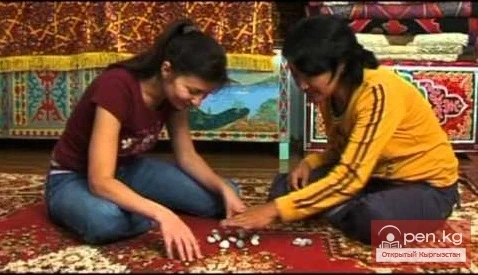
The title "Беш таш" translates to "Five Stones" in English.
Besh tash literally: (five stones). It is usually played by teenage girls. Each player must have 5...
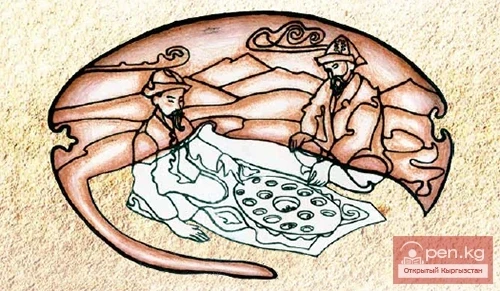
Toguz Korgol (Toguz Kumalak)
Toguz Korgool (or Toguz Kumalak) — nine balls — is an ancient Kyrgyz tabletop game that somewhat...
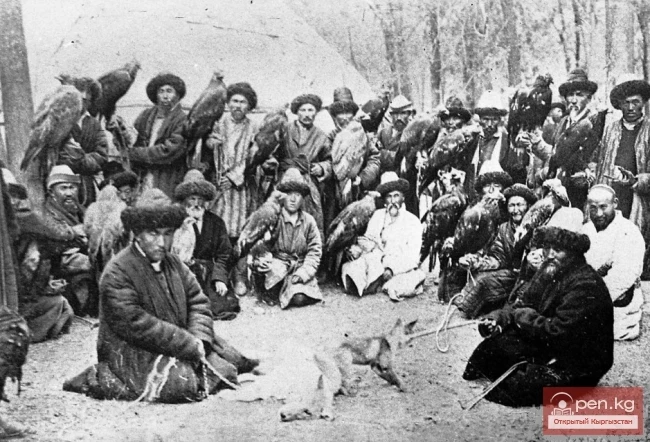
Other Customs of the Kyrgyz in the Early 20th Century
OTHER CUSTOMS Chingish Aji When a nomadic caravan passes through a foreign aul, it is greeted with...
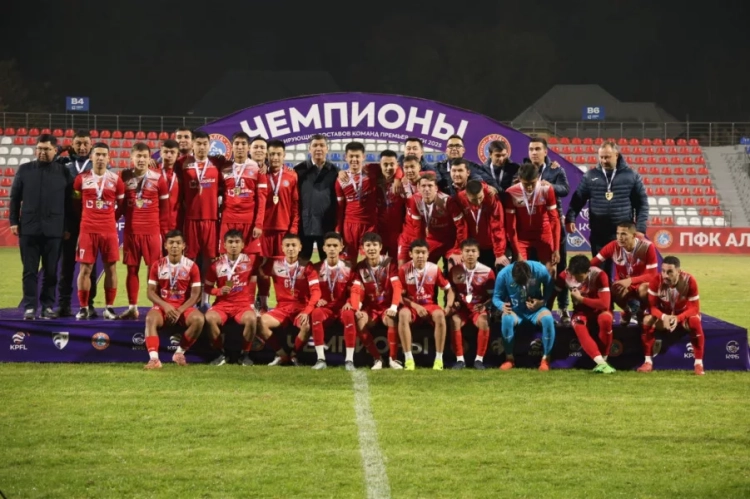
"Alga" - Champion! The Mayor of Bishkek congratulated the team on their gold in the reserve championship.
The best player of the match, team captain Melisbek uulu Elzar (No. 17), demonstrated outstanding...
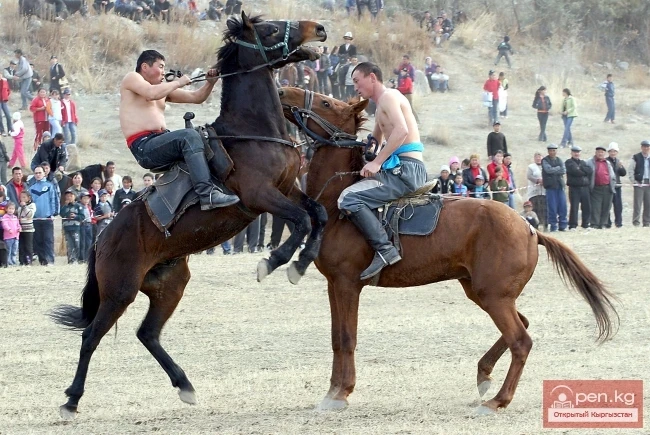
On National Kyrgyz Games
“May the ancestors be blessed, who left us these fearless men's games” CHINGIZ AITMATOV...
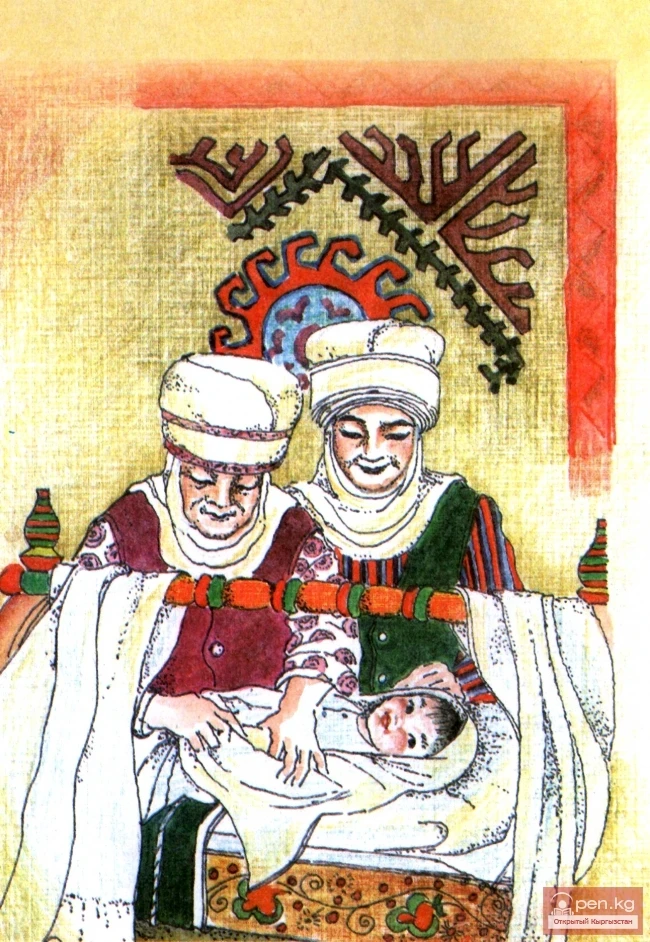
Lullaby Celebration (Beshik Toy)
The birth of a child among the Kyrgyz, like among other peoples of the world, is an indescribable...
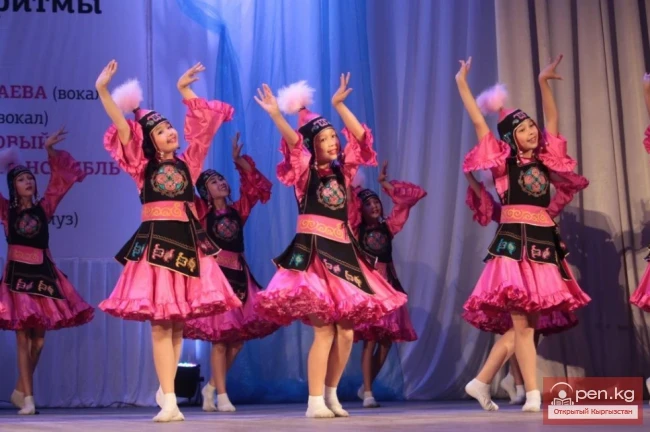
Kyrgyz Dance - "The Flirtatious Girl"
THE FLIRTATIOUS GIRL (KYIALDUU KYZ) The Kyrgyz youth dance "The Flirtatious Girl" is...
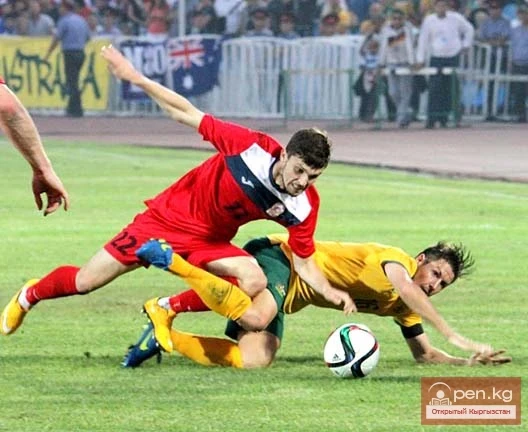
Anton Zemlyanukhin - the most expensive football player in Kyrgyzstan
The player of the Kyrgyzstan national team and the Serbian club "Radnički" (Niš), Anton...
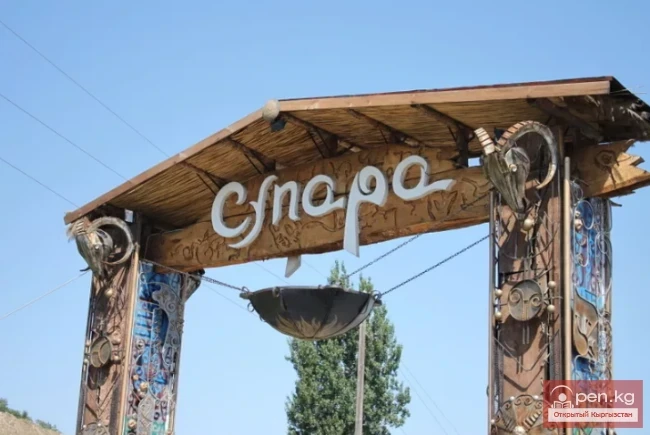
Events on Saturday, August 3 in Bishkek
Saturday Events in Bishkek "Culture" Summer Edition. For those tired of the heat, 191Bar...

The Tale of the Bald Shepherd
The Bald Shepherd This happened a long time ago. A noble warrior named Sokbay was riding across...
Young Talents: A Student from Tyup R. Perizhiga is Fluent in Kyrgyz and Conquering Equestrian Sports in Kyrgyzstan
Ruslan Perezhiga, who lives in the village of Tyup in the Issyk-Kul region, speaks Kyrgyz fluently...
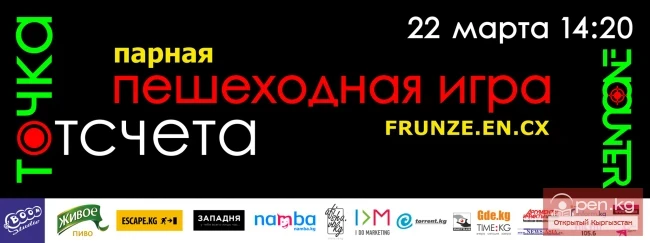
The pedestrian game titled "Starting Point"
On March 22, at 14:00, a walking game called "Point of Reference" will begin on the...
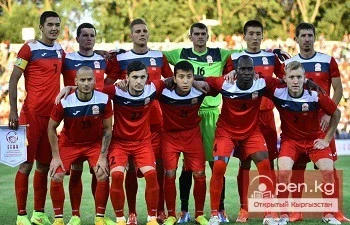
The Bangladesh National Football Team Lost to Kyrgyzstan
On the evening of Tuesday, October 13, the last match of the qualifying round for the 2018 World...
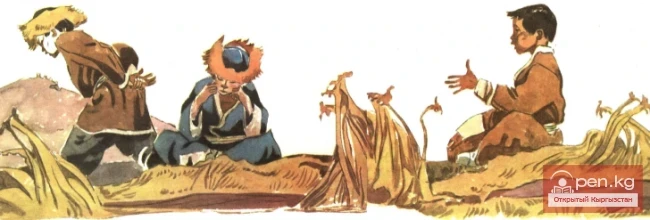
The Tale of Kyochpesbai and His Son Shukurbek
KYOCHPESBAI AND HIS SON SHUKURBEK Once upon a time, in ancient times, there lived two rich men....

Forward, Baybars!
Recently, matches were held in Qatar as part of the qualifying round for the 2016 AFC Asian Cup....
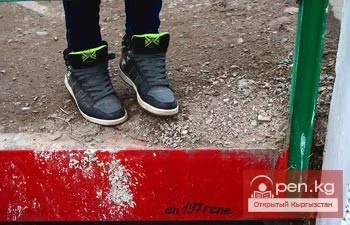
The most active urban game in the republic has turned 10 years old.
January 2016 was marked for the residents of Bishkek not only by abnormal warmth, long holidays,...
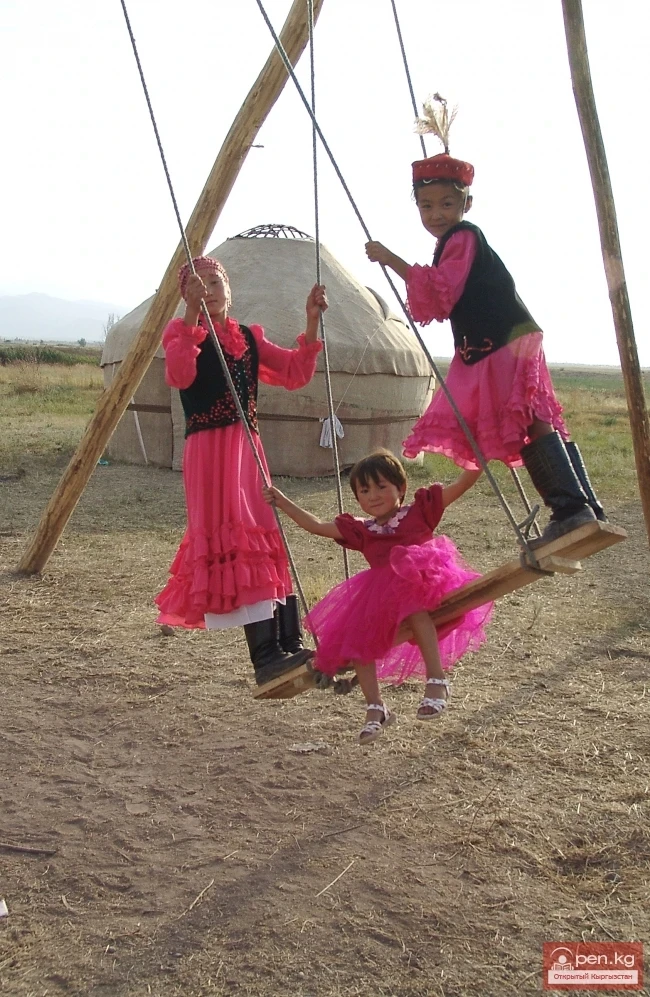
The title translates to: "The Six Banners of Selkinchek and Dumpuldak."
Alty bakan selkinchek. One of the most popular entertainments is swinging (selkinchek). In the...
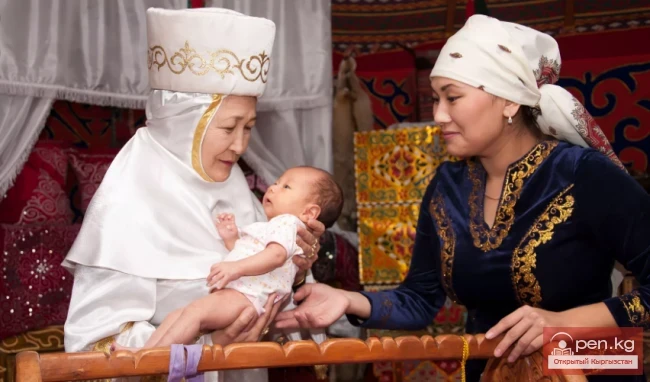
Rituals Associated with the Birth and Upbringing of a Child Among the Kyrgyz. From the Ritual Life of the Kyrgyz in the Early 20th Century. Part - 10
Childbirth Pishpek District, Buraninskoye Village During childbirth, men can assist. If the woman...
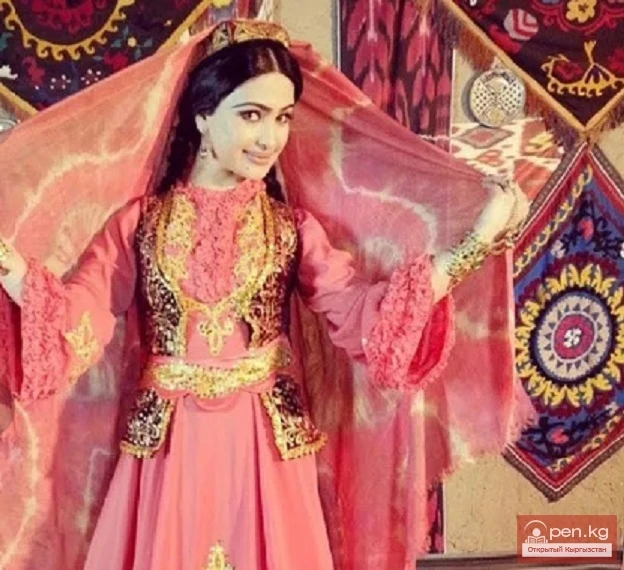
The title translates to: "The Craftswoman Named Uz-ene."
About the Skillful Mistress, Like the Ringing Song of the People's Soul In a small coastal...
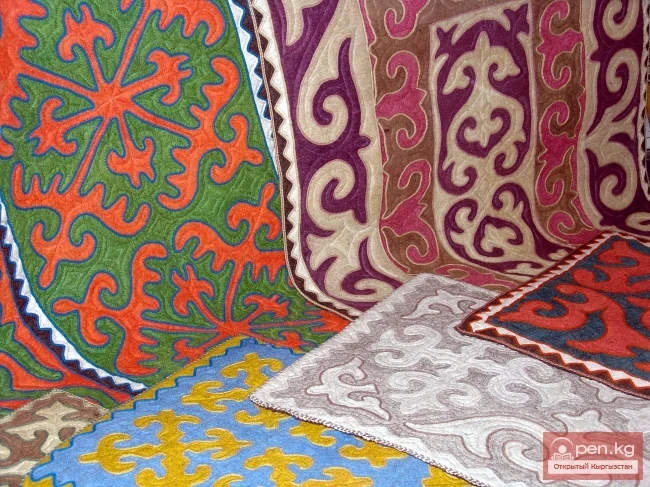
The Technique of Felt Production
The technology of producing felt, both unadorned and adorned, is mainly reduced to the same...
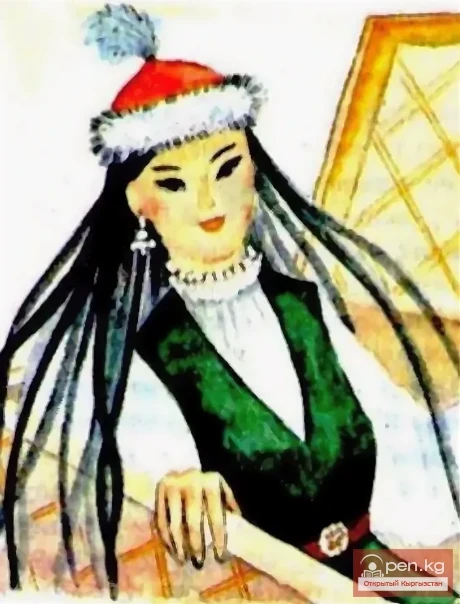
The Tale of the Wise Akylzhan. Part - 1
AKYLJAN In ancient times, there lived a khan. This khan had a wise vizier. Both the khan and the...
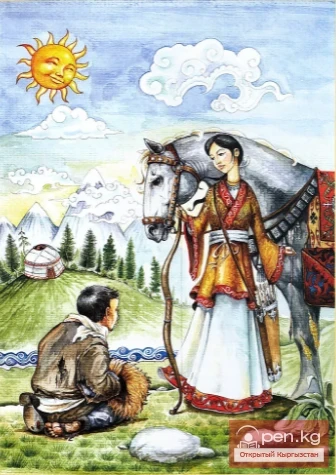
The Tale of Alyka and Barypjan
ALYKE AND BARYPZHAN There lived two friends named Sarykan and Karakan. Sarykan had a son, Alyke,...
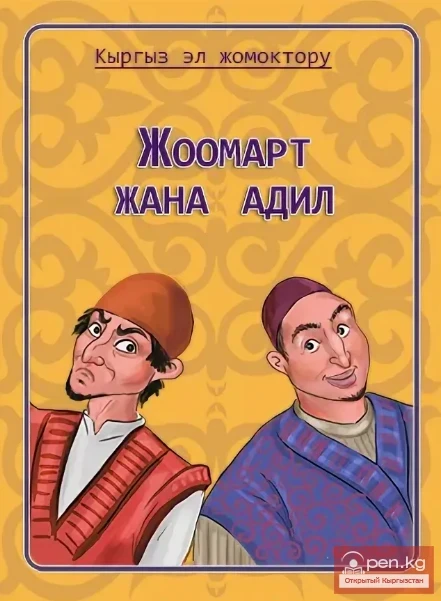
The Tale of Joomart and Adile
JOOMBART AND ADIL In ancient times, there were khans among neighboring peoples—Joombart-khan and...

The Role of N. S. Kholfin in the Development of Kyrgyz Ballet
N.S. Kholfin is one of the first enthusiasts of creating Kyrgyz professional ballet One of the...
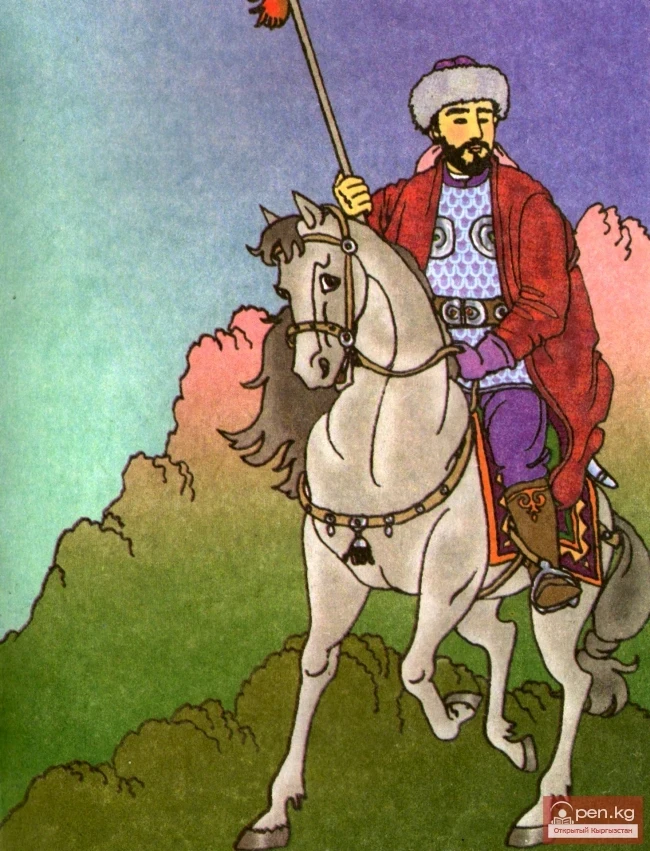
Ormon Khan
In times long past, there lived a famous Kyrgyz manap, Ormon, a person of strong will, very...
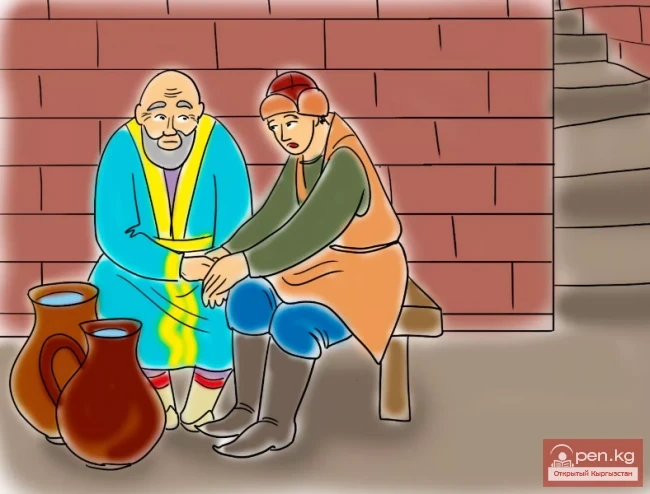
The Tale of the Clever Old Man
THE WISE OLD MAN In ancient times, there lived a young khan. He observed his subjects and saw that...
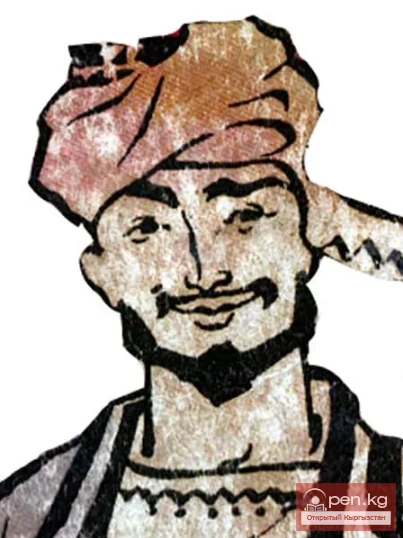
The Tale of the Clever Peasant
THE CLEVER FARMER There lived a khan. One day he decided to amuse himself and ordered his loyal...
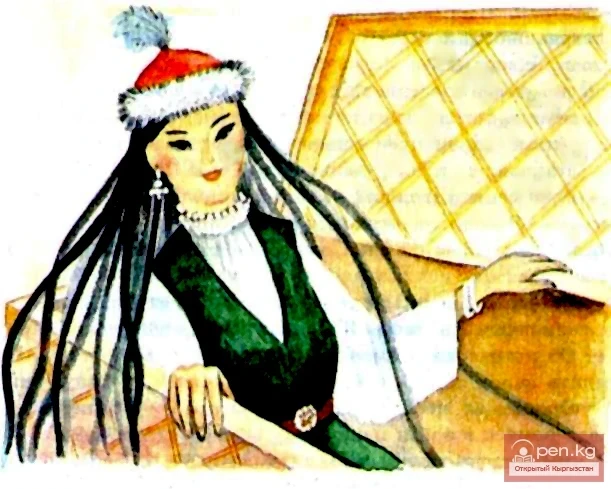
Akkyon and Ainek
And there was a time like that. In the eastern part of the Chui Valley, at the foot of the...

Traveling with Children
What to Take on Vacation with a Child? Sooner or later, the time comes when you decide to take a...
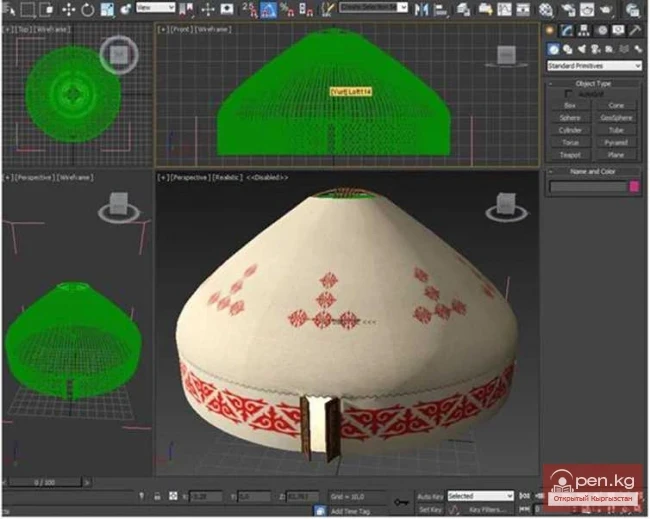
In Kyrgyzstan, a game based on the national epic will be released.
A group of Kyrgyz developers has appealed to the country's president, Almazbek Atambayev,...

Pulad-Khan — the Poor Kyrgyz Who Became a Khan
Mulla Iskak Asan oglu — Pulad-Khan The most loyal and consistent leader of the uprising of...
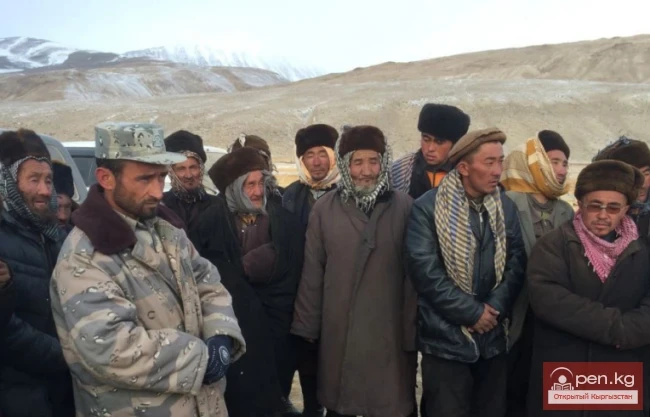
A new khan of the Kyrgyz has been elected in the Little Pamir
The new head of the Pamir Kyrgyz is 44 years old, named Azhybutu Abdylgani uulu. In Afghanistan,...
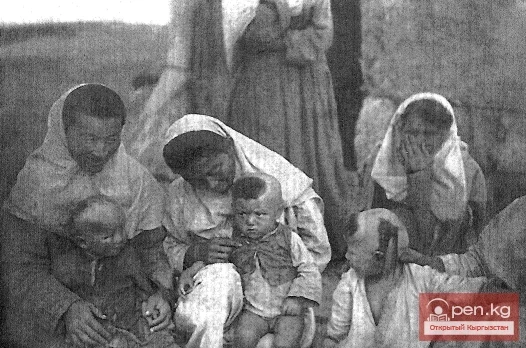
Naming, First Steps, Circumcision. From the Ritual Life of the Kyrgyz in the Early 20th Century. Part - 12
Naming Pishpek District, Buranin Village The "Mother-navel" takes the child immediately...
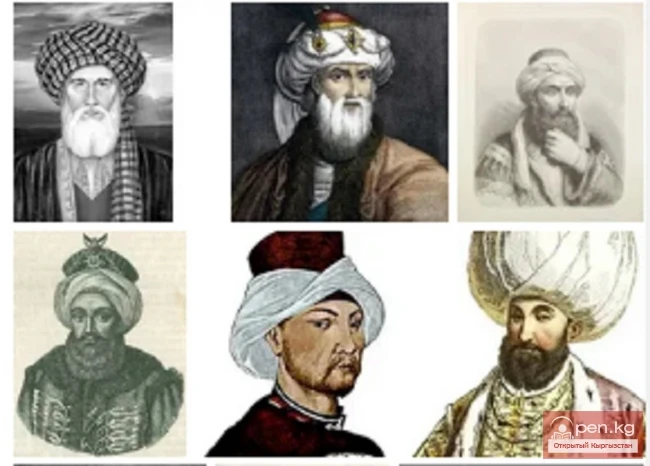
Rulers of Eastern Turkestan
Rulers of Eastern Turkestan and Their Relations with the Kyrgyz and Kazakhs In the spring of 1514,...
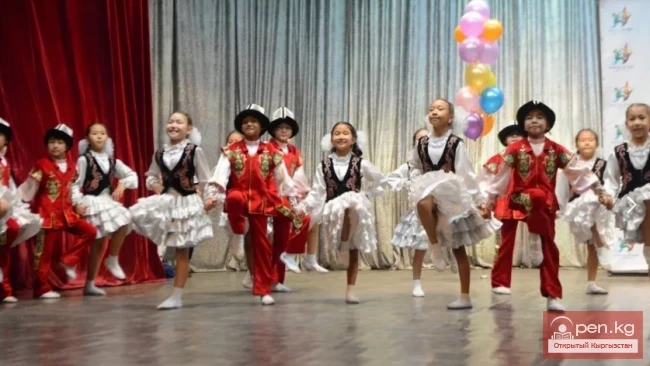
Kyrgyz Youth Dance "Komuzchu"
“Komuzchu” The Kyrgyz youth dance “Komuzchu” is usually performed at musical evenings for young...

Snooker – the chess of billiards!
Billiards is one of the most popular sports in our country, both at the amateur and professional...

Ulak-tartys (goat wrestling)
Ulak-Tartysh (goat wrestling) is a traditional equestrian sport where riders compete for the...
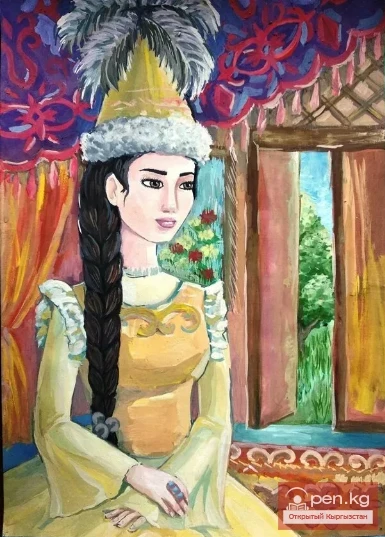
The Tale of the Wise Akylzhan. Part - 2
Part - 2 And the next story is as follows, — Akylzhan continued. — A man had three sons. All of...
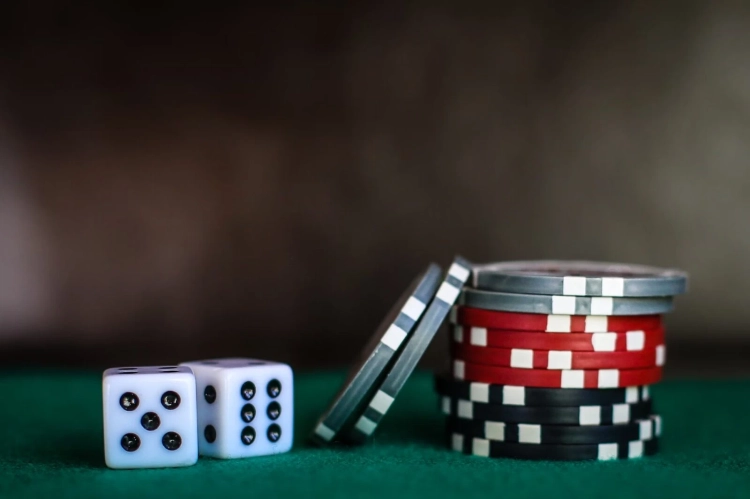
Mostbet Tajikistan – A Successful Betting Company with Wide Opportunities
Mostbet offers its users a wide range of services since its inception. With a license to operate...
